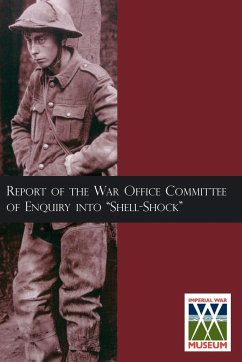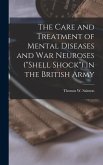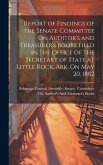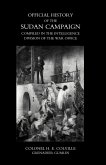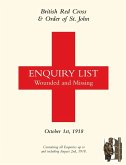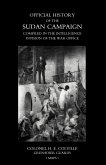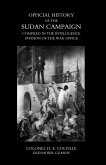The sheer number of cases of 'Shell-shock' thrown up by the hellish conditions of trench warfare in the Great War, forced the military authorities, for the first time, to take combat stress seriously. Early in the war, the mental effects of exposure to combat had been put down as 'malingering'; 'lack of moral fibre'; or even cowardice. However, gradually a more enlightened attitude prevailed and hospitals - such as Craiglockhart in Edinburgh where war poets Wilfred Owen and Siegfried Sassoon were treated - were opened. Here, psychiatrists such as WHR Rivers dealt with the condition as a recognised medical problem. In many cases, neurasthenia - as combat stress was then called - only appeared after men returned home after the war. The numbers of cases of men applying for shell-shock disability pensions - 114,600 - forced the Government to set up an Enquiry committee in 1920 which reported in 1922. This is that official report. The committee, composed of doctors, military officers and Civil Servants, heard evidence from 59 expert witnesses, and its report encompassed the views of traditionalists who believed the condition resulted from physical damage to nerves, and more modern opinion, which thought the neurosis had emotional roots.
Hinweis: Dieser Artikel kann nur an eine deutsche Lieferadresse ausgeliefert werden.
Hinweis: Dieser Artikel kann nur an eine deutsche Lieferadresse ausgeliefert werden.

